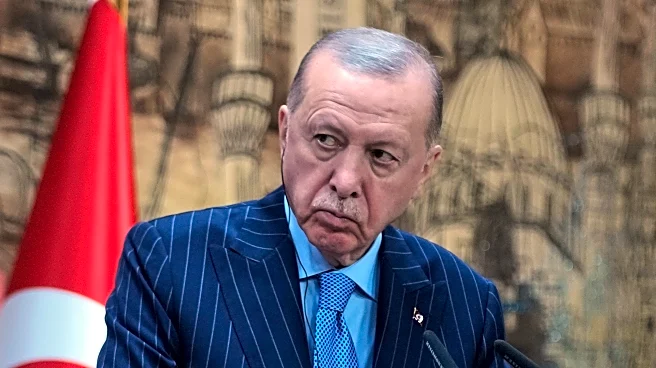Rapid Read • 8 min read
Former Reserve Bank of India Governor D Subbarao has expressed concerns over the 'Make in India' initiative potentially becoming isolationist, which could negatively impact investments and productivity in India. He highlighted the punitive 50% tariffs imposed by the United States on Indian exports, which could increase the cost of Indian goods in the American market, India's largest overseas market. Subbarao emphasized that the success of 'Make in India' should be based on competitiveness rather than protectionism. He noted that the initiative was intended to position India as an export-driven manufacturing hub, not just for domestic needs but for global markets. The US tariffs pose a challenge to this ambition, potentially deterring investors who might consider India as an alternative to China in their diversification strategies.
AD
The imposition of high tariffs by the United States on Indian exports could have significant implications for India's economy, particularly in labor-intensive sectors such as textiles, gems and jewelry, and leather. These tariffs could undermine India's competitiveness in the global market and affect its aspirations to become a manufacturing hub. The situation also complicates the bilateral trade relationship between India and the US, which had aimed to triple trade to USD 500 billion by 2030. Additionally, the tariffs could lead to increased competition from other Asian countries with lower tariffs, such as Bangladesh, Vietnam, and Indonesia, further challenging India's position in the global market.
India may need to explore strategic negotiations with the United States to mitigate the impact of tariffs on its exports. This could involve offering selective concessions in politically sensitive sectors like agriculture and dairy, while seeking greater access to the US market for Indian goods. Subbarao suggests that India should focus on pragmatic compromises that deliver broader trade benefits, while protecting its key interests. Additionally, India might consider diversifying its oil imports gradually to reduce dependency on Russian oil, which could help stabilize global oil prices and protect India's economic interests.
The broader implications of the US tariffs and the 'Make in India' initiative highlight the challenges of balancing self-reliance with global competitiveness. The situation underscores the importance of strategic trade negotiations and the need for India to adapt its economic policies to navigate international trade dynamics effectively. It also raises questions about the long-term sustainability of protectionist policies and their impact on India's growth trajectory.
AD
More Stories You Might Enjoy












